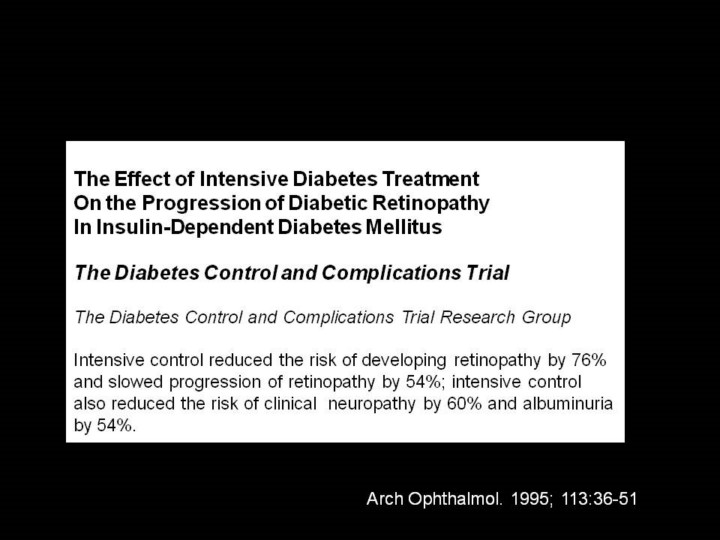| front |1 |2 |3 |4 |5 |6 |7 |8 |9 |10 |11 |12 |13 |14 |15 |16 |17 |18 |19 |20 |21 |22 |23 |24 |25 |26 |27 |28 |29 |30 |31 |32 |33 |34 |35 |36 |37 |38 |39 |40 |41 |42 |43 |44 |45 |46 |47 |48 |49 |50 |51 |52 |53 |54 |55 |review |
 |
Knowing that worse sugar control is associated with worse retinopathy is not quite the same as knowing that good sugar control can alter the natural history of retinal disease. And so the Diabetes Control and Complications Trial Research Group set out to answer this question prospectively. They looked at over 700 diabetic pts with no retinopathy and over 700 pts with mild to moderate retinopathy and treated some with conventional therapy bid shots and some with intensive control qid shots or a pump and found that intensive control reduced risk of developing retinoapthy by 75% and reduced the risk of progression by 54% and that neuropathy and nephropathy were reduced as well.
Risk factor control is key. |